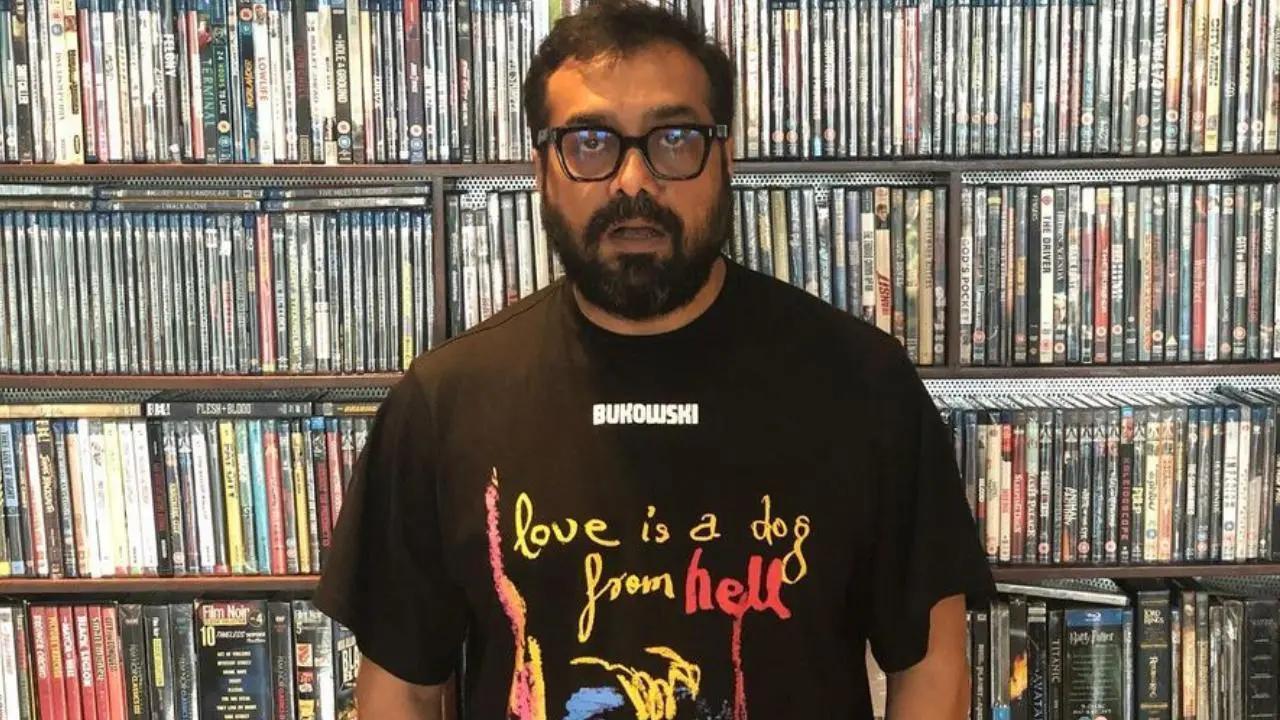
Anurag Kashyap, a celebrated filmmaker known for his daring and innovative films, has recently voiced his concerns over the rising costs of actors in the Bollywood industry. This issue has not only impacted the budgets of big-budget movies but has also played a significant role in their underperformance at the box office. Kashyap’s observations come from firsthand experience, particularly during the production of the widely popular “Sacred Games.”
In a candid discussion with Humans of Bombay, Kashyap revealed the startling shift in on-set culture that he witnessed. “I had never seen so many vanity vans on my set as I did during ‘Sacred Games’,” he remarked. “And that’s how the culture started. Once it began, there was no turning back.” His comments point to an industry-wide trend where not just the creative aspects but also the associated paraphernalia have started demanding considerable portions of a film’s budget.
Kashyap pointed out that while it’s fair for technical crews, who were often overlooked, to receive their due, the influx of additional expenses has posed a significant challenge. “Finally, those people started getting paid who were totally ignored, which is the technical crew… It’s fair, in a way. But a lot of extra things started coming in,” he emphasized. These “extra things” encompass a range of luxuries and accommodations that go far beyond the essential needs of a film set.
Expanding on his critique, Kashyap addressed the fundamental misallocation of resources within film budgets. “They aren’t spending on just the film. One thing people need to understand is that when we make a film, we’re working, we’re creating something. It’s not a holiday, it’s not a picnic,” he asserted. He elaborated further, explaining how significant sums of money are diverted to unnecessary expenditures, rather than the elements that truly contribute to the film itself. “A lot of money that is spent doesn’t go into making the film.
. It goes into the paraphernalia, it goes into the entourage,” he explained.
A particularly stark example Kashyap provided illustrates this misallocation vividly. “You’re shooting in the middle of a jungle,” he described, “but one car will be sent to the city three hours away specifically to get you that five-star burger you want.” This anecdote highlights how individual preferences and extravagant demands can drain a film’s budget unnecessarily, ultimately affecting the production quality and profitability of the movie.
Kashyap’s concerns also revisit past controversies, such as the one involving actor Abhay Deol during the filming of “Dev D.” Kashyap had previously claimed that Deol demanded a five-star room for his stay. Reacting to these allegations, Deol, in an interview with Midday’s Sit With Hitlist, disputed Kashyap’s claims vehemently, labeling them as false. Deol went so far as to call Kashyap a liar and a toxic individual, exposing a rift that brings to light the underlying tensions within the industry regarding actors’ demands.
Despite these controversies and challenges, Kashyap himself continues to engage with the vibrant world of filmmaking. He is set to portray the character of Kazbe, a quirky, charming, and deadly villain in the upcoming film “Bad Cop.” Speaking about his role, Kashyap remarked, “I have created a lot of characters that are gory, quirky, dark, and many more things, but believe it or not, it was difficult for me to portray one.” The challenge lies in the complexity of Kazbe, who is described as someone who acts without much forethought, embodying a dreadfully eccentric and nefarious persona. “Kazbe is someone who doesn’t think too much before doing anything, he just does it,” Kashyap explained. “He is a dreadful, eccentric, nefarious, and quintessential villain. I had to delve into the intricacies of this character and make it my own.”
In conclusion, Anurag Kashyap’s reflections and critiques serve as a poignant reminder of the shifting dynamics within Bollywood. His observations underline the necessity for a more balanced and efficient allocation of resources that prioritize the creative and technical aspects of filmmaking over extravagant and often unnecessary luxuries. As the industry grapples with these challenges, voices like Kashyap’s might just provide the pivotal insight needed to steer Bollywood towards a more sustainable future.












